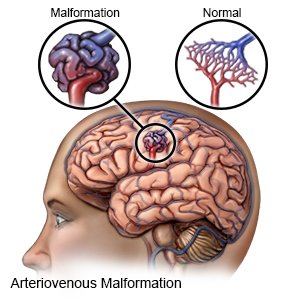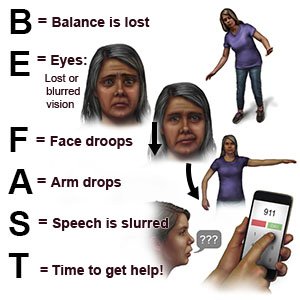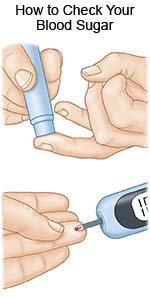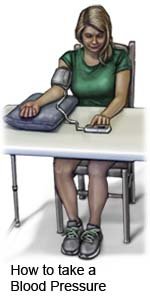Arteriovenous Malformation
Medically reviewed by Drugs.com. Last updated on Aug 4, 2025.
An arteriovenous malformation (AVM) is an abnormal connection between arteries and veins. The connection becomes tangled. Blood flows too quickly from the arteries and pushes on the walls of the veins. The walls weaken and become narrow. The artery walls also become weak. They begin to bulge from blood that is not able to go into the narrow veins. An AVM that has not burst usually causes no symptoms, or may cause headaches or seizures. A burst AVM may cause blood to leak into surrounding tissue, and may lead to a stroke. The leaked blood can also cause your brain to swell.
 |
DISCHARGE INSTRUCTIONS:
Call your local emergency number (911 in the US) or have someone else call if:
- You have any of the following signs of a stroke:
- Numbness or drooping on one side of your face
- Weakness in an arm or leg
- Confusion or difficulty speaking
- Dizziness, a severe headache, or vision loss

- You have a seizure.
- You have the worst headache of your life.
Call your doctor or neurologist if:
- You have more than 1 migraine headache.
- You have questions or concerns about your condition or care.
Related medications
Warning signs of a stroke:
The word F.A.S.T. can help you remember and recognize warning signs of a stroke.
- F = Face: One side of the face droops.
- A = Arms: One arm starts to drop when both arms are raised.
- S = Speech: Speech is slurred or sounds different than usual.
- T = Time: A person who is having a stroke needs to be seen immediately. A stroke is a medical emergency that needs immediate treatment. Some medicines and treatments work best if given within a few hours of a stroke.

Treatment options
The following list of medications are related to or used in the treatment of this condition.
Prevent a stroke:
- Manage health conditions. A condition such as diabetes can increase your risk for a stroke. Control your blood sugar level if you have hyperglycemia or diabetes. Take your prescribed medicines and check your blood sugar level as directed.

- Check your blood pressure as directed. High blood pressure can increase your risk for a stroke. Follow your healthcare provider's directions for controlling your blood pressure.

- Do not use nicotine products or illegal drugs. Nicotine and other chemicals in cigarettes and cigars can cause blood vessel damage. Nicotine and illegal drugs both increase your risk for a stroke. Ask your healthcare provider for information if you currently smoke or use drugs and need help to quit. E-cigarettes or smokeless tobacco still contain nicotine. Talk to your healthcare provider before you use these products.
- Do not drink alcohol. Alcohol increases your risk for a stroke. Alcohol may also raise your blood pressure or thin your blood. Blood thinning can cause a hemorrhagic stroke.
- Eat a variety of healthy foods. Healthy foods include whole-grain breads, low-fat dairy products, beans, lean meats, and fish. Eat at least 5 servings of fruits and vegetables each day. Choose foods that are low in fat, cholesterol, salt, and sugar. Eat foods that are high in potassium, such as potatoes and bananas.
- Exercise as directed. Exercise can lower your blood pressure, cholesterol, weight, and blood sugar levels. Healthcare providers will help you create exercise goals. They can also help you make a plan to reach your goals. For example, you can break exercise into 10 minute periods, 3 times in a day. Find an exercise that you enjoy. This will make it easier for you to reach your exercise goals.
- Maintain a healthy weight. Ask your healthcare provider how much you should weigh. Ask him or her to help you create a weight loss plan if you are overweight.
- Manage stress. Stress can raise your blood pressure. Find new ways to relax, such as deep breathing or listening to music.
For support and more information:
- American Stroke Association
Phone: 1- 888 - 478-7653
Web Address: http://www.stroke.org
Follow up with your doctor or neurologist as directed:
Write down your questions so you remember to ask them during your visits.
© Copyright Merative 2025 Information is for End User's use only and may not be sold, redistributed or otherwise used for commercial purposes.
The above information is an educational aid only. It is not intended as medical advice for individual conditions or treatments. Talk to your doctor, nurse or pharmacist before following any medical regimen to see if it is safe and effective for you.
Learn more about Arteriovenous Malformation
Treatment options
- Medications for Cardiovascular Conditions and Disorders
- Medications for Cerebral Vascular Disorder
- Medications for Cerebrovascular Insufficiency
Care guides
Further information
Always consult your healthcare provider to ensure the information displayed on this page applies to your personal circumstances.
